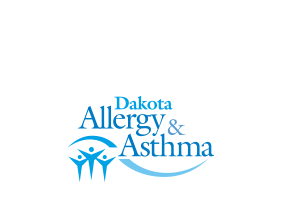You’re out on a relaxing hike when you first notice the itching. The sensation starts on your arms, under layers of winter gear. As you turn back, you think you can feel the hives spreading--and you realize that you’re going to have to walk all the way back to your car itching like crazy. It’s not a thought that fills you with joy, especially because you didn’t think winter allergies were a thing. Certainly not winter hives!

Unfortunately for some, allergic reactions involving hives may become more prominent in the winter.
What Are Those Itchy Red Bumps on My Skin?
Hives, also called urticaria, are extremely itchy skin bumps that come and go over a short period. They are caused by a release of histamine. Generally, the individual bumps (known as lesions) last less than 24 hours. Hives are often a part of a food allergy reaction (along with a swollen and itchy throat, trouble breathing, vomiting, faintness, and so on) but can also be caused by many other things.
In some cases, it might be easy to confuse hives with other skin issues, such as bug bites. However, the signature symptoms of hives include:
- Hives tend to appear very quickly and disappear just as suddenly. This can make the onset of a hive reaction quite alarming. (Hence, why you might ask: “What are those red bumps on my skin and where did they come from?!”)
- Hives can appear just about anywhere on your body. The overall rash can also change shape or even move around--all within a short period of time.
- If you press down on the center of a red hive, it will usually turn white. This likely will not happen with other bumps and rashes, such as bug bites.
What Causes Winter Hives?
In the winter, a major cause of hives is infections. The body’s immune system goes into high gear to defend us from a viral or bacterial invasion. In some patients, this activates more of the complement system (the part of the immune system that enhances the activities of antibodies directly fighting off infections).
The complement system can release histamine, which causes hives. This hive reaction helps to bring in many other elements of the immune system, helping you get over the infection and feel better. In many ways, these hives are similar to a fever--a complement system response designed to help you fight infection.
This hive reaction is common in the winter, then, because transmission of cold and flu are also prevalent during the cold months.
Hives and Winter Allergies
Of course, infection isn’t always the cause of winter hives. Because allergic reactions and your immune system are closely intertwined, any common winter allergies could theoretically cause hives. That’s why when Dr. Bubak’s patients come in with hives, we have to be sure there isn’t another cause. Causes of hives include:
- Bacterial or viral infections
- Latex
- Some foods (such as peanuts) as part of anaphylaxis
- Some medications
- Exercise (at times combined with a specific food)
- Cold, heat, light, and vibration
- Autoimmune problems
- Inhaled allergy rarely is a cause for hives
If the cause is an infection, we’ll check to see if there are any medications that might help.
Treating Winter Hives
Sometimes it takes some investigation to find the root cause of your skin issues and winter hives–or your winter allergies more broadly. But you can find allergy relief. Sometimes that can be accomplished with over-the-counter remedies. In other cases, Dr. Bubak may recommend allergy shots as a means of controlling your allergic reactions over the long term.
After all, the goal of Dr. Bubak’s treatments is to get you back out on the hiking trail, doing what you love to do. So talk to a board certified allergist to make sure your next outdoor trek doesn’t end up getting too itchy. Contact Dakota Allergy & Asthma today!






